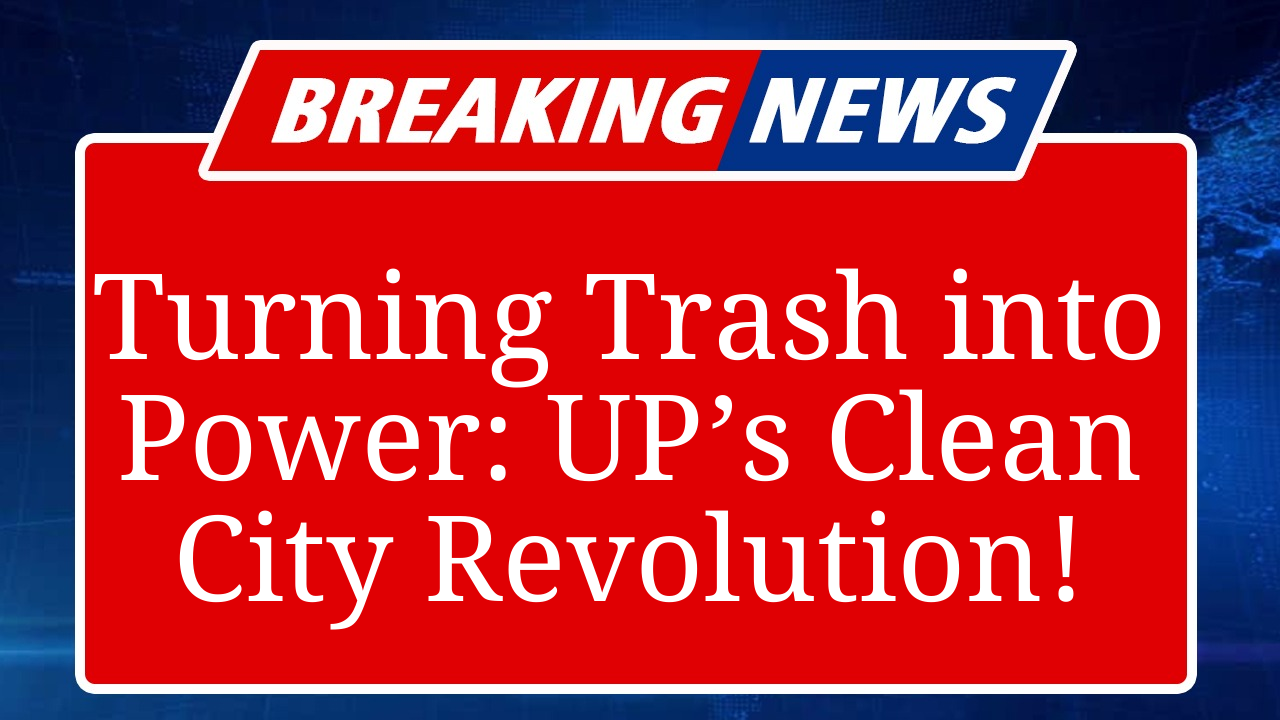“Uttar Pradesh is advancing its clean energy goals with new waste-to-energy plants in Muzaffarnagar, Ghaziabad, and Varanasi, aiming to tackle municipal waste while generating electricity. These projects promise environmental benefits but face challenges like high costs and pollution concerns. The state’s bioenergy policies and central funding support drive this initiative for sustainable urban development.”
Uttar Pradesh Bolsters Clean Energy with Waste-to-Energy Initiatives
Uttar Pradesh is making strides in addressing its mounting municipal solid waste crisis while advancing clean energy production through waste-to-energy (WTE) plants. In 2019, the state government signed an agreement with Dutch company GC International to establish WTE power plants in Muzaffarnagar and Ghaziabad, with an investment of Rs 2,000 crore. These plants are designed to process municipal solid waste to generate electricity, with the state energy department agreeing to purchase power at Rs 7.5 per unit. Additionally, a memorandum of understanding was inked in Varanasi in 2019 for another WTE facility, marking it as the state’s first such plant, aimed at converting urban waste into renewable energy.
The Uttar Pradesh New and Renewable Energy Development Agency (UPNEDA) estimates that the state has a potential of over 150 MW of energy production through processing waste from industries like distilleries, food processing units, dairies, and pulp and paper mills. These projects not only aim to reduce environmental pollution by managing waste but also meet the thermal and electrical energy needs of industries, fostering a dual benefit of sustainability and economic efficiency.
The state’s Bioenergy Policy 2022 further supports these initiatives by promoting bioenergy enterprises through capital subsidies, 100% reimbursement of state GST for 10 years, and full exemption on stamp duty for land purchases related to such projects. As of 2023, 14 bioenergy projects have been sanctioned under this program, showcasing Uttar Pradesh’s commitment to reducing reliance on fossil fuels and enhancing its bio-economy.
Nationally, the Ministry of New and Renewable Energy (MNRE) is bolstering WTE projects through the Waste to Energy Programme, offering Central Financial Assistance (CFA) that is 20% higher for plants in special category states like Uttar Pradesh. The program mandates the use of SCADA systems for remote monitoring and requires projects to demonstrate performance for at least three consecutive months to qualify for funding. Applications are processed through the BioURJA portal, ensuring streamlined approvals for both self-financed and loan-based projects.
However, WTE plants face significant challenges. Experts highlight that the high cost of waste transportation and segregation makes these projects capital-intensive. A previous attempt in Lucknow in 2001 to set up a 5 MW WTE plant by Chennai-based Asia Bioenergy failed due to insufficient solid waste supply, underscoring logistical hurdles. Critics also point to environmental concerns, as incineration-based WTE plants can release toxic pollutants like dioxins and particulate matter, especially when burning unsegregated waste with low calorific value and high moisture content, typical of Indian municipal waste.
The quality of municipal solid waste in India, with a calorific value of 1,411-2,150 kcal/kg compared to 1,900-3,800 kcal/kg in countries like Sweden and the US, often necessitates additional fuel for combustion, reducing the plants’ efficiency. Environmentalists argue that these plants may exacerbate air pollution, particularly in densely populated urban areas, and advocate for stricter waste segregation and sustainable waste management practices to ensure only non-recyclable, high-calorific waste is used.
Despite these challenges, Uttar Pradesh’s WTE initiatives align with national goals under the Swachh Bharat Mission, which aims to manage the 1,50,761 tonnes of solid waste generated daily in India, as reported in 2019-20. The state’s efforts are part of a broader push to transform cities like Lucknow, Muzaffarnagar, and Ghaziabad into cleaner, more sustainable urban centers. Recent visits by Andhra Pradesh’s Municipal Administration Minister P. Narayana to WTE facilities in Lucknow indicate interest in replicating Uttar Pradesh’s model elsewhere, highlighting its potential as a blueprint for other states.
As Uttar Pradesh moves forward, the success of these plants will hinge on effective waste segregation, advanced pollution control technologies, and public-private partnerships to ensure operational and environmental sustainability. The state’s proactive policies and investments signal a strong commitment to balancing urban waste management with clean energy production, setting a precedent for other Indian states grappling with similar challenges.
Disclaimer: This article is based on recent reports, government announcements, and expert analyses available on the web. Information is sourced from credible platforms like The Hindu, Times of India, and the Ministry of New and Renewable Energy. Readers are advised to verify details with official sources for the latest updates.

